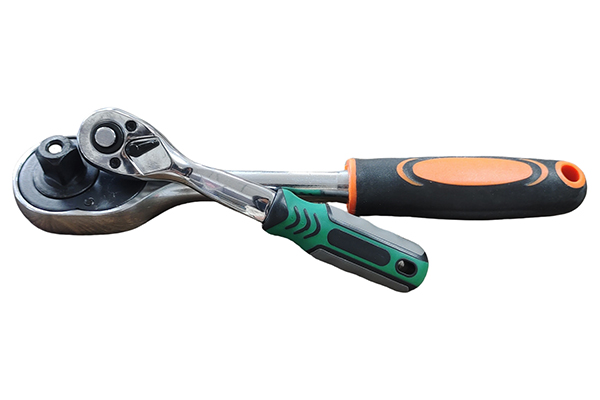A ratchet wrench, commonly known as a ratchet, is a versatile and indispensable tool in various industries, from automotive repair to construction and even DIY home projects. Its unique design and functionality have made it a go-to tool for professionals and hobbyists alike. But what exactly is a ratchet wrench used for, and why is it so popular? This article delves into the applications and benefits of ratchet wrenches, explaining why they are essential in any toolkit.
Understanding the Ratchet Wrench
Before exploring its uses, it’s essential to understand what a ratchet wrench is. A ratchet wrench is a type of hand tool that incorporates a ratcheting mechanism into the head of the wrench. This mechanism allows the wrench to apply torque in one direction while moving freely in the opposite direction, making it easier to tighten or loosen bolts without having to remove and reposition the wrench after each turn.
Ratchet wrenches come in various sizes, and the ratcheting mechanism is designed to work with interchangeable sockets, which can be attached to different-sized nuts and bolts. This makes the tool highly adaptable and suitable for a wide range of tasks.
Primary Uses of a Ratchet Wrench
1. Automotive Repair
One of the most common uses for a ratchet wrench is in automotive repair. Mechanics rely on ratchets to quickly and efficiently remove or tighten bolts in engine components, wheel assemblies, and other parts of a vehicle. The ratchet wrench's ability to apply consistent torque while allowing for continuous motion makes it ideal for working in tight spaces where other tools might struggle. For example, when removing a car's wheel, a ratchet wrench can quickly loosen the lug nuts, significantly speeding up the process.
2. Construction and Assembly
In the construction industry, ratchet wrenches are used for assembling structures, installing machinery, and securing fasteners. Whether you’re building a metal frame, assembling scaffolding, or installing heavy-duty equipment, a ratchet wrench allows for the efficient tightening of bolts and nuts. The ratcheting mechanism helps to apply consistent torque, ensuring that fasteners are secure and reducing the likelihood of loosening over time.
3. Home Improvement and DIY Projects
For DIY enthusiasts and home improvement projects, a ratchet wrench is an essential tool. From assembling furniture to installing appliances or performing basic home repairs, a ratchet wrench can make tasks easier and faster. For instance, when putting together flat-pack furniture, a ratchet wrench can tighten bolts more quickly than a standard wrench, saving time and effort. The tool’s versatility means it can be used in a variety of home maintenance tasks, from fixing leaky pipes to mounting shelves.
4. Industrial Applications
In industrial settings, ratchet wrenches are used for heavy-duty tasks that require significant torque. This includes assembling machinery, maintaining equipment, and performing repairs in manufacturing plants. The efficiency and strength of ratchet wrenches make them ideal for industrial environments where time is money, and the reliability of equipment is crucial. The ability to work quickly and effectively in confined spaces is particularly valuable in these settings.
Benefits of Using a Ratchet Wrench
1. Time Efficiency
One of the primary benefits of using a ratchet wrench is the time saved during tasks. The ratcheting mechanism allows for continuous movement, meaning that the wrench doesn’t need to be repositioned after each turn. This can significantly speed up the process of tightening or loosening bolts, especially when dealing with multiple fasteners.
2. Versatility
Ratchet wrenches are incredibly versatile tools. With the ability to swap out sockets, a single ratchet wrench can be used on various fastener sizes and types. This adaptability makes it a valuable tool for both professionals and DIYers who may encounter different bolt sizes in their work.
3. Ergonomic Design
Ratchet wrenches are designed to reduce the strain on the user’s hand and wrist. The tool’s handle often features an ergonomic design that provides a comfortable grip, allowing the user to apply more torque with less effort. This is particularly beneficial during prolonged use, where standard wrenches might cause fatigue.
4. Precision and Control
The ratcheting mechanism allows for precise control over the amount of torque applied to a fastener. This is important in tasks where over-tightening could damage components or where a specific torque setting is required. Ratchet wrenches often come with a switch that allows the user to change the direction of the ratcheting action, providing greater control during use.
Conclusion
The ratchet wrench is a versatile, efficient, and essential tool in many fields, from automotive repair and construction to home improvement and industrial applications. Its ability to save time, provide precise control, and work in tight spaces makes it invaluable for both professionals and DIY enthusiasts. Whether you’re assembling a piece of furniture, working on a car engine, or maintaining industrial machinery, a ratchet wrench is a tool you’ll want in your toolkit. Its popularity is well-earned, as it continues to prove its worth in a wide range of applications.
Post time: 09-10-2024




